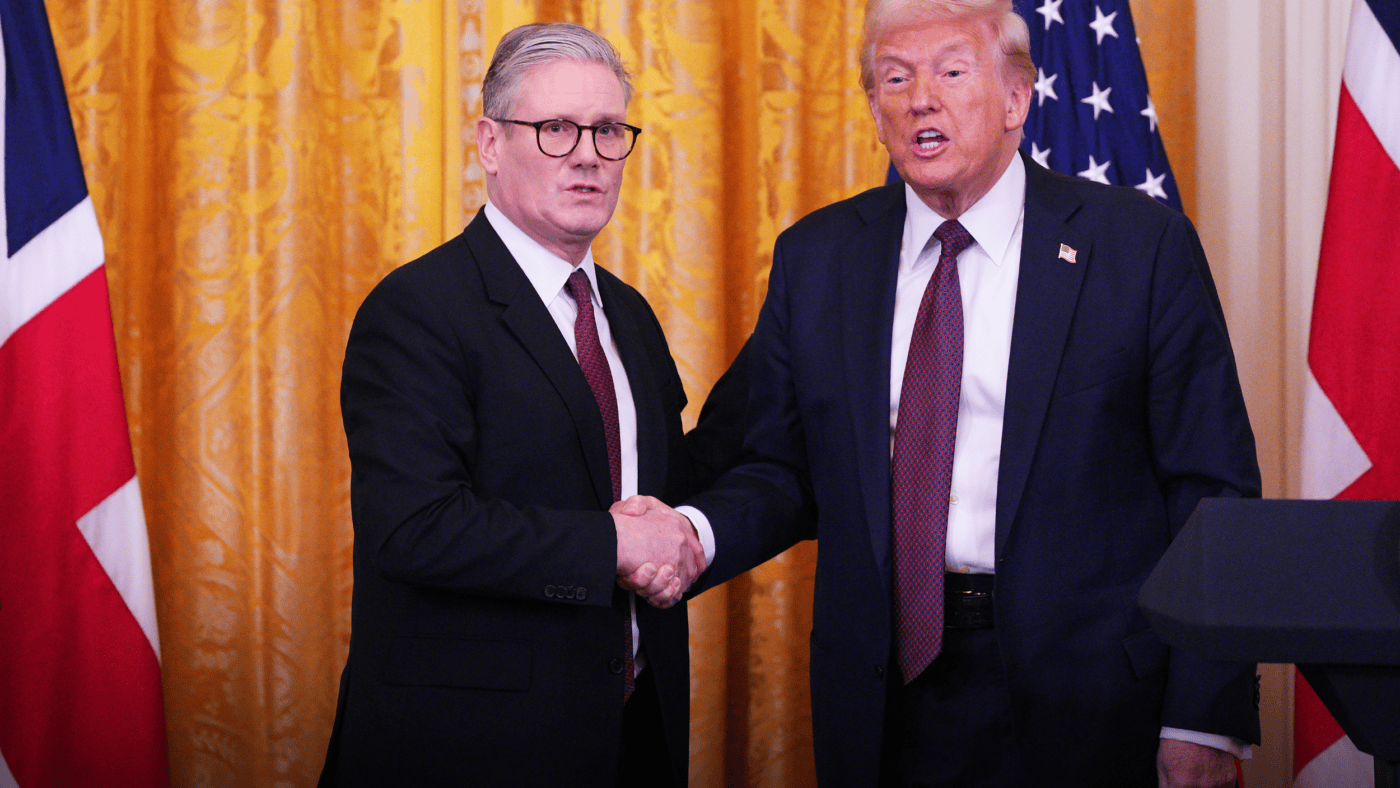Last summer’s production of Richard III at Shakespeare’s Globe decided to be ‘brave’. Trump quotes were added to the script. The Duke of Buckingham was sporting a red baseball cap. The cultural resistance was back.
Putting aside the cringe, it didn’t even work. Richard III tells the tale of a physically deformed but intellectually cunning leader who schemes his way to power with little popular support.
Nevertheless, with a change of guard potentially imminent in the imperial capital across the ocean, provincial artists rushed to update their cultural references, however clumsily.
The pathological need to insert US drama into the UK’s script isn’t new, but that doesn’t mean it isn’t damaging.
There is a breathless anxiety in the UK press about the effects of Donald Trump’s presidency on reasonably settled or non-contentious policy issues.
This week, the BBC ran a think piece, citing one anonymous employee at a finance company and a single LinkedIn post, which suggested that people were worried that the return of Trump could mark the start of a ‘masculine’ backlash against UK workplace diversity, equity and inclusion (DEI) programmes.
Labour MP Stella Creasy has raised the spectre of a US-style abortion debate coming to Britain.
Meanwhile, the 2019-era nonspecific Trump plot to take over the NHS appears to be back again.
What these anxieties about the spillover effects of a Trump presidency lack is anything resembling a theory of change. To take one of these examples, Stella Creasy’s abortion statement followed on from Nigel Farage questioning whether the UK’s legal limit for abortion should be 22 weeks rather than 24.
Putting aside the rights or wrongs of the issue, the House of Commons currently has a Labour majority of 158. What exactly is the pathway from Nigel Farage thinking aloud to any change in the law? Even Jacob Rees-Mogg, likely the staunchest elected pro-life politician of the past decade, has stated in the past that UK laws ‘were not going to change’ and that he respected the ‘democratic majority’ on the issue.
Why does this style of argument bother me? After all, campaigners will campaign. DEI consultants will want to DEI consult.
For a start, this attempt to mirror someone else’s discourse hollows out political debate. It produces bad filler content, channels people’s energies into performative activism and spreads unnecessary alarm.
Secondly, it simply acts as a convenient method of shutting down certain issues.
It’s perfectly legitimate for people in the UK to question the efficacy of workplace DEI initiatives or to ask whether or not the current model for UK healthcare is sustainable. We should judge these issues on their merits, and decide independently whether or not we care about them, rather than treating them as a chance to fight out a pound shop version of US politics.
Thirdly, America Brain is just a political dead end in much of the UK. Our political and media elite might be marinated in X and all its Americanness, but much of this lacks resonance for ordinary voters. Most people just do not care what Elon Musk thinks about Keir Starmer.
Elements of this shine through clearly in Kemi Badenoch’s recent speech at the Alliance for Responsible Citizenship, with its apocalyptic discussion of western civilisation and rehash of the 2020 War of Starmer’s Knee. She compared the eventual return of the Tories to a Trump second term – a brave move, given his approval rating among UK voters currently sits at about … minus 40.
You also see it in the profusion of ‘British DOGE’ accounts on X, highlighting largely trivial line items of public spending in already desiccated government departments.
It can reach absurd proportions when former MPs start arguing that the US should offer asylum to freedom-loving British patriots fleeing Starmite authoritarianism.
In much the same way the left can playact at US civil rights debates, American cultural hegemony gives the Conservative Party ample room to enjoy its holiday from reality or any kind of introspection.
It’s unfortunate, because there are very real areas where the Trump administration does have implications for Europe. We’re seeing significant consequences for Ukraine and defence.
It’s great to see the UK – and now Germany – accelerating plans to increase spending, but many of our European allies continue to inhabit vibes-land. It’s one thing to publicly express support for the Ukrainian war effort. It’s quite another to work out how we’d plug the gaps in the continent’s missile defence and anti-submarine warfare capabilities in the event of a US pullback. Writing our own script may prove harder than the pale imitation.
Alex Chalmers posts on Substack at Chalmermagne. Read more here.
Click here to subscribe to our daily briefing – the best pieces from CapX and across the web.
CapX depends on the generosity of its readers. If you value what we do, please consider making a donation.


